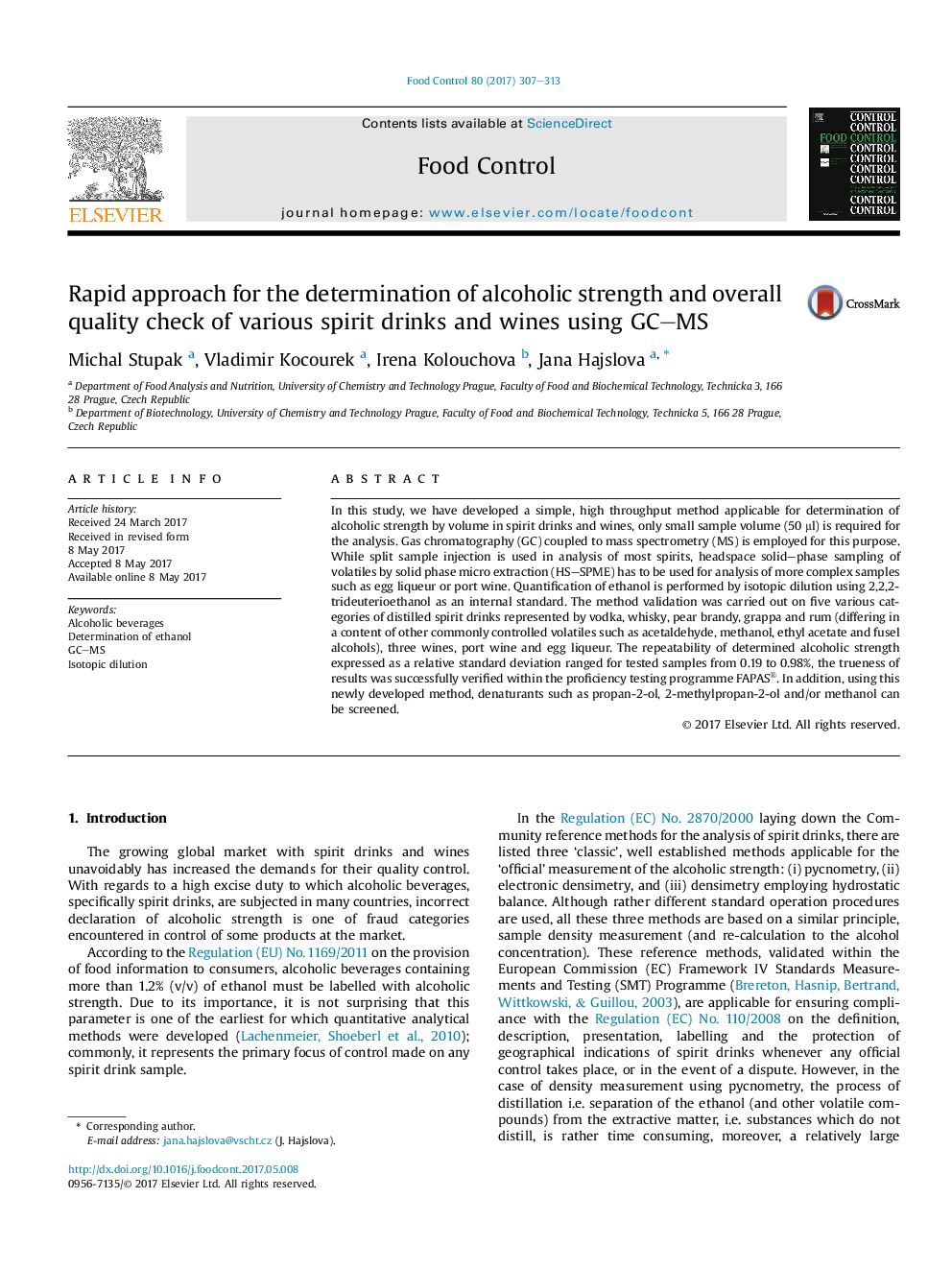| Article ID | Journal | Published Year | Pages | File Type |
|---|---|---|---|---|
| 5767256 | Food Control | 2017 | 7 Pages |
â¢GC-MS method was proposed for the determination of ethanol in spirits and wines.â¢Satisfactory accuracy was achieved employing isotopic dilution method.â¢Developed procedure is rapid and simple, requiring only 50 μl of sample.â¢A good repeatability of alcoholic strength determination was achieved.â¢A method was also applied for a screening of common denaturants.
In this study, we have developed a simple, high throughput method applicable for determination of alcoholic strength by volume in spirit drinks and wines, only small sample volume (50 μl) is required for the analysis. Gas chromatography (GC) coupled to mass spectrometry (MS) is employed for this purpose. While split sample injection is used in analysis of most spirits, headspace solid-phase sampling of volatiles by solid phase micro extraction (HS-SPME) has to be used for analysis of more complex samples such as egg liqueur or port wine. Quantification of ethanol is performed by isotopic dilution using 2,2,2-trideuterioethanol as an internal standard. The method validation was carried out on five various categories of distilled spirit drinks represented by vodka, whisky, pear brandy, grappa and rum (differing in a content of other commonly controlled volatiles such as acetaldehyde, methanol, ethyl acetate and fusel alcohols), three wines, port wine and egg liqueur. The repeatability of determined alcoholic strength expressed as a relative standard deviation ranged for tested samples from 0.19 to 0.98%, the trueness of results was successfully verified within the proficiency testing programme FAPAS®. In addition, using this newly developed method, denaturants such as propan-2-ol, 2-methylpropan-2-ol and/or methanol can be screened.
